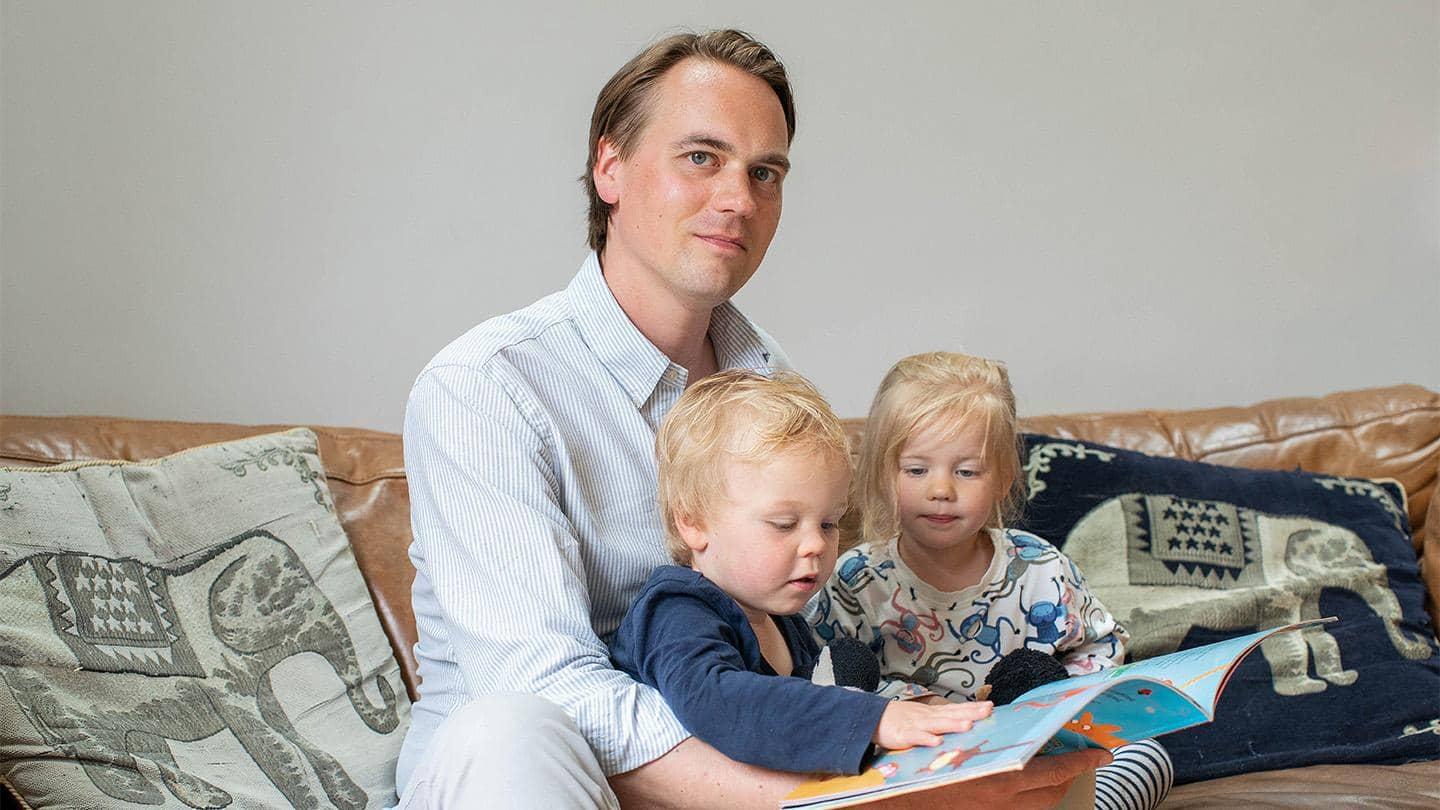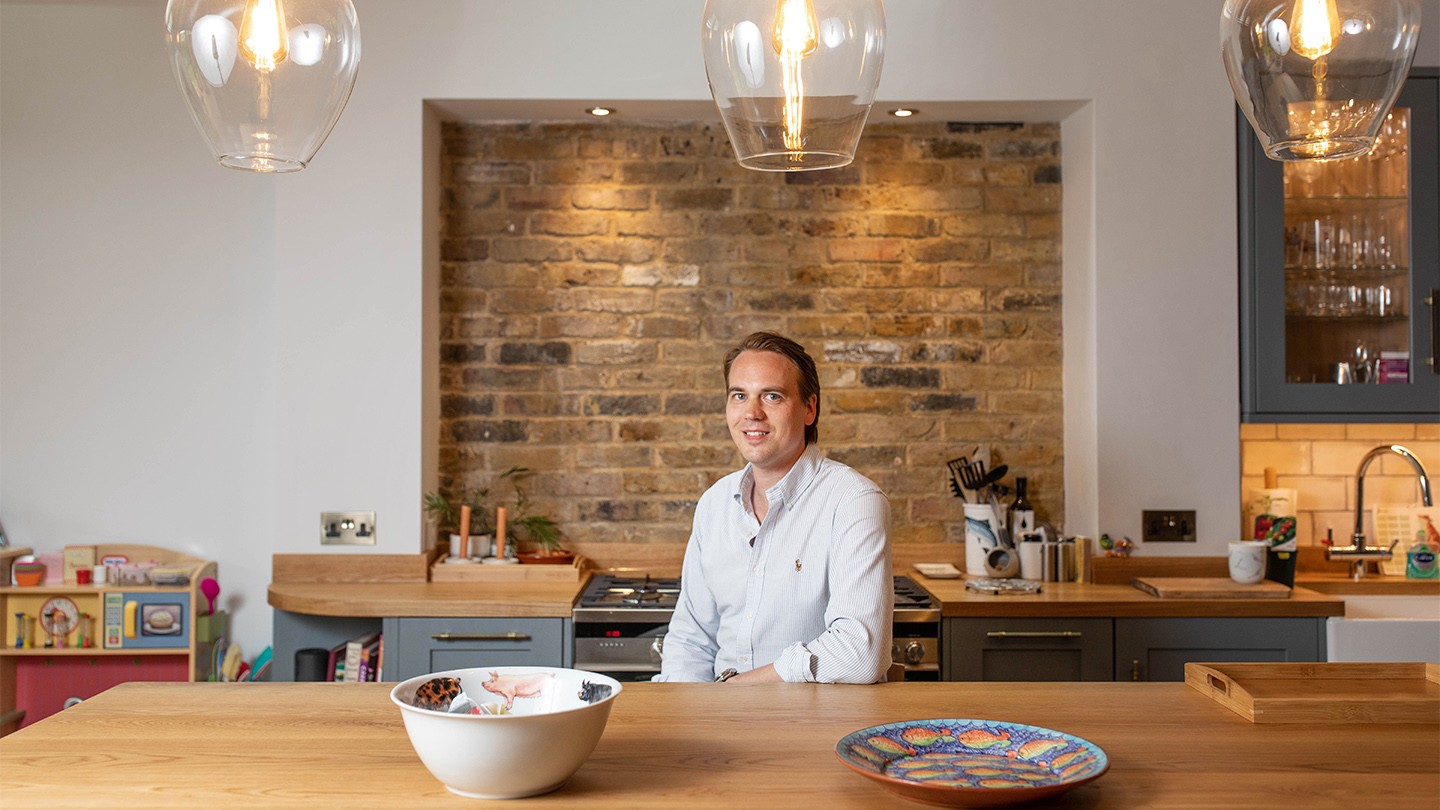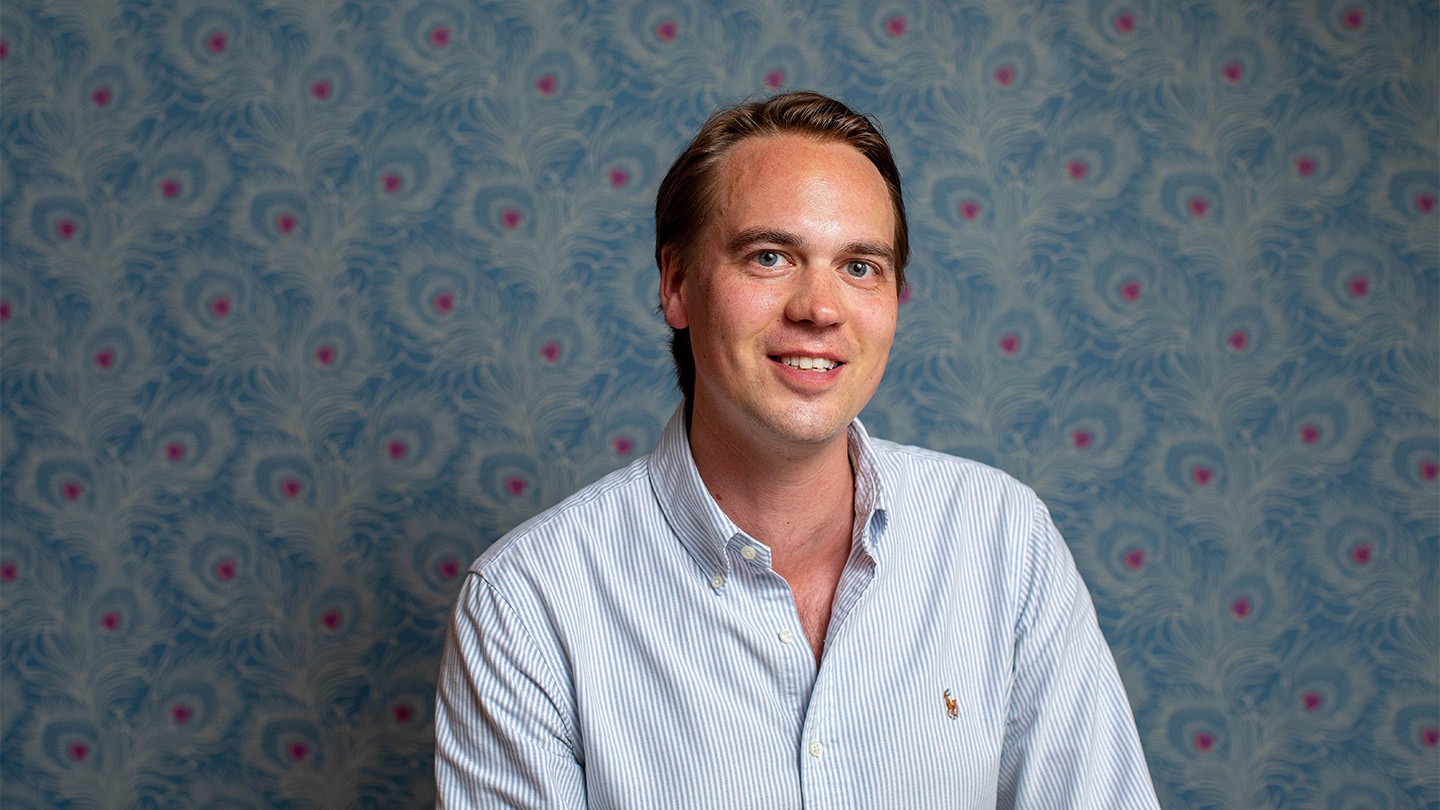
Culture
“Working men need to normalise their involvement in childcare duties”
Becoming a father and getting involved with Barclays’ Women in Business initiatives prompted Gavin Westmoreland to examine how he and other male colleagues could drive gender equality within the bank. He explains how his 'Male Allies' group is making change for women.
When Barclays’ Gavin Westmoreland became a father to twins in 2018, the joy of parenthood that he shared with his wife, Louise, came with an extra layer of reflection.
Now looking to a future of raising a boy and girl, he realised something: no matter how equal their upbringings, his daughter may have to navigate systemic inequality because of her gender.
“They have exactly the same birthday, they will have the same background, they’ll go to the same schools,” says Westmoreland, “but if and when my daughter faces disadvantages purely as a result of being a woman, that will be distressing.”
Westmoreland believes he shares the experience of many fathers who, at the prospect of raising girls, gained clearer insight into some of the barriers that women face in society. Considering these disadvantages in relation to his own daughter, Westmoreland had to ask himself: “How would I feel about that?”

Westmoreland says it’s essential for male colleagues to normalise their role in familial duties.
[My twins] have exactly the same birthday, they will have the same background, they’ll go to the same schools – but if and when my daughter faces disadvantages purely as a result of being a woman, that will be distressing.
Head of Multiline Insurance, Barclays Corporate Banking
As Head of Multiline Insurance at Barclays, Westmoreland recognises the male-dominated nature of the industry – but also that things need not always stay that way. He recalls formative experiences earlier in his career, learning a great deal from a very influential female supervisor: “She had a very, very different style to most of the male bosses I've had, and certainly was not the stereotypical ‘senior banker type’ at all. But she was incredibly successful and made an enormous impact at the bank.”
He says it’s vital to recognise the need for “diversity of experience and diversity of styles” in leadership, and that there is no set criteria for what makes a successful leader.
This is why he decided to start an initiative aimed at broadening the conversation around gender equality – and helping to inspire the involvement of more male allies.
Addressing the added challenges of COVID-19
Westmoreland’s Male Allies workstream encourages men to take an active part in the ongoing fight for gender equality. It’s separate from the Male Allies initiative launched by Barclays’ Win network five years ago, but has a similar mission.
Recognising that men play an essential role in women’s ability to overcome societal obstacles, the workstream offers events and initiatives designed to help male colleagues get involved, offer solidarity, share their perspectives and, ultimately, fuel progress.
The pandemic has led to well-publicised gender issues – with women reported to be overwhelmingly bearing the brunt of childcare and housework responsibilities in two-job households.
If we don't allow women to progress at the same rate as men, then our experiences will be less rich as a result.
Head of Multiline Insurance, Barclays Corporate Banking

Barclays’ Gavin Westmoreland formed the Male Allies workstream to broaden the conversation around gender diversity.
The Male Allies workstream responded by organising initiatives that encouraged men to recognise the added challenges women were experiencing – and to offer support. The 60-strong UK group holds quarterly meetings and runs events, communicating regularly with other groups in Europe, the US and Asia.
“It’s unfortunate that, while working from home can offer an enormous number of benefits,” he says, “it can also become unmanageable. Because there's a lot of work and a lot of life and never enough time to get everything done.”
But one thing men can do to ease the burden for women is “normalise their involvement in familial duties”, says Westmoreland. “If you're a senior leader within the team, it's important that you set an example by being open about your regular family commitments, for example: ‘I’m sorry, I won’t be able to make that call at that time – I've got to go pick my kids up from nursery’.”
His wife Louise is currently at home full-time and plans to return to her career in the brewing industry later this year. In the meantime, they divide responsibilities at home. “It's about normalising and setting a visible example that it’s not just women who have to deal with competing priorities,” he says.
An “eye-opening” look into women’s experiences in business
Recent research from PwC has indicated that women in work have been disproportionately impacted by the COVID-19 pandemic, with higher rates of job losses and an increased, unbalanced burden of unpaid domestic work and care.
“It has struck me how women have often been the first to be impacted when the going gets tough,” says Westmoreland, “and as I've got to more senior positions, it's become evident to me that we need to do more to drive the gender diversity agenda.”
A desire to drive this agenda was part of what fuelled his interest in creating the Male Allies workstream. Westmoreland was eager to take the thoughts he’d been having on workplace diversity and “put them into action”.
“I wanted to take a step out of my comfort zone to learn more,” he says. “It's not an area that I had active conversations around in the past – and feeling uncomfortable talking about these things is probably one of the main reasons that more is not done. One of the primary reasons that the Male Allies community is so important is that it gets people talking.”
Joining Barclays’ Women in Business committee in 2019 was an “eye-opener” for him. As the only man at the table, when the reverse tended to be the norm elsewhere in the industry, the very structure of the committee helped him recognise that the experiences of men and women in the workplace differ. He stresses the importance of hearing women’s experiences.
“The Male Allies effort stemmed from listening,” he says. “Some of the listening groups that we held with women in the business, to understand their experiences, were enormously insightful. Playing those stories back to a room of men was incredibly impactful.”
Initiatives by the Male Allies workstream
The allies group, says Westmoreland, focuses on engendering change at a personal level. “We try to encourage individual men within Barclays to feel comfortable having conversations around gender equality,” says Westmoreland, “with a goal of helping to level the playing field more broadly. We’re not here to tell people to stop doing things. We're encouraging people to start doing things that benefit other people.”
Mentoring and sponsorship programmes have also been effective in delivering change, he says. “There’s a really interesting piece of research which shows that in companies where men are actively engaged in promoting gender diversity, 96% make progress – versus only 30% where men are not involved.”
In addition to working within Barclays, Westmoreland takes his efforts to clients in the insurance sector, running events and panels on gender diversity. “I'm keen to help our clients to progress their own agenda in the space,” he says. “We’re very used to having goals in terms of revenue and profitability. But goals set around diversity should stand very much alongside those, because they’re also critical to the success of the business.”
Committed to these goals, Westmoreland has seen the workstream expand from a “hobby” into an international network with senior backing – including groups across Europe, the US and Asia.
“It’s very rewarding to see how it’s expanded globally, and for male allies across the world to hear about the challenges their female counterparts have faced,” he says.